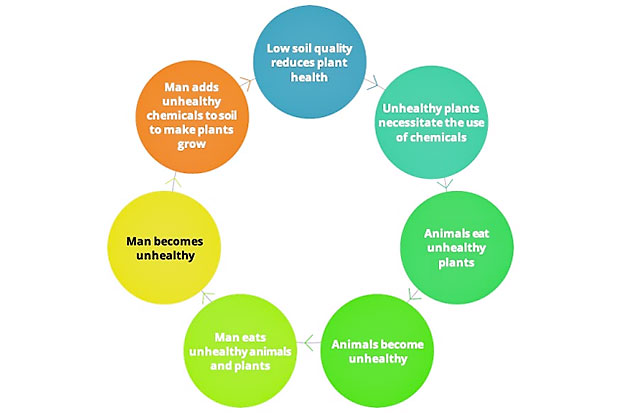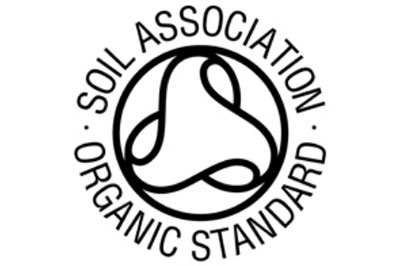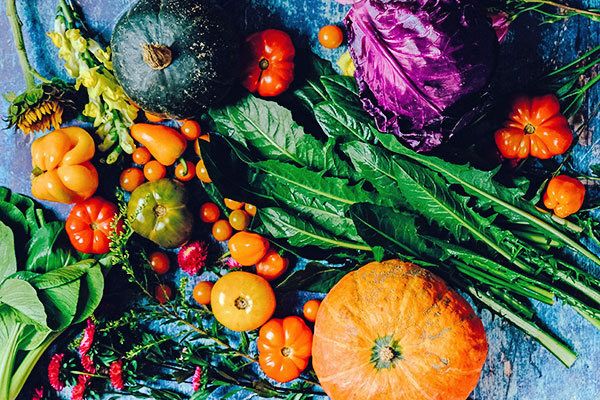Balanced Diet
Eating a balanced diet is one thing and managing intake quantities is another but another important factor that must be considered is the quality of food. Beyond the refinement processes that often strip food of much its nutritional value, the farming, handling, manufacturing and preparation of food from seed to eating can adversely affect food quality.
Modern farming methods and even common cooking methods can have an adverse effect on the nutritional and therefore healthful qualities of the food we eat.
The Food Cycle
Consider the cycle of food quality described below:

Nutritionally, many seemingly healthy foods are considerably less nutritionally dense than they were as few as 50-years ago because of intensive farming methods, breeding to increase profitability, the routine use of artificial fertilizers, pesticides, herbicides and fungicides and antibiotics and growth hormones. Thankfully there is an alternative…
Organic farming.
Organic farming began in the 1940s in response to the mass-food production methods that developed as a result of World War II and has, in the last few decades, become a very marketable force in the food industry.
Organic food producers are bound by strict legislation that helps ensure a higher level of farming which leads to more nutritionally-dense and therefore healthier food.
Several studies have demonstrated that food grown organically contains far more essential nutrients than traditionally-farmed foods but none of the harmful artificial substances used in regular farming.
The soil association, the regulatory body governing organic food production, stipulates that organic food must:
- Contain minimal additives
- Use no pesticides, fungicides or herbicides in the production
- Contain no genetically modified ingredients
- Involve no non-essential or routine antibiotic treatment on animals
- Ensure animal welfare is paramount

While it is irrefutably true that organic food is more nutritious than non-organic food, this health benefit comes at a price and unscrupulous food manufacturers often attempt to “dupe” unwary consumers into buying organic “junk food” by making them believe that anything organic must be healthy.
While organic fruit, meat, vegetables, nuts, seeds and grains are undoubtedly healthy, organic cookies, cakes, ice creams, sugary breakfast cereals or processed meals are still far from healthy and should be consumed in moderation if at all.
If you would like more information about how having a nutrition plan can improve your health, why not book a FREE 30-minute consultation with me to discuss your health & fitness goals?

